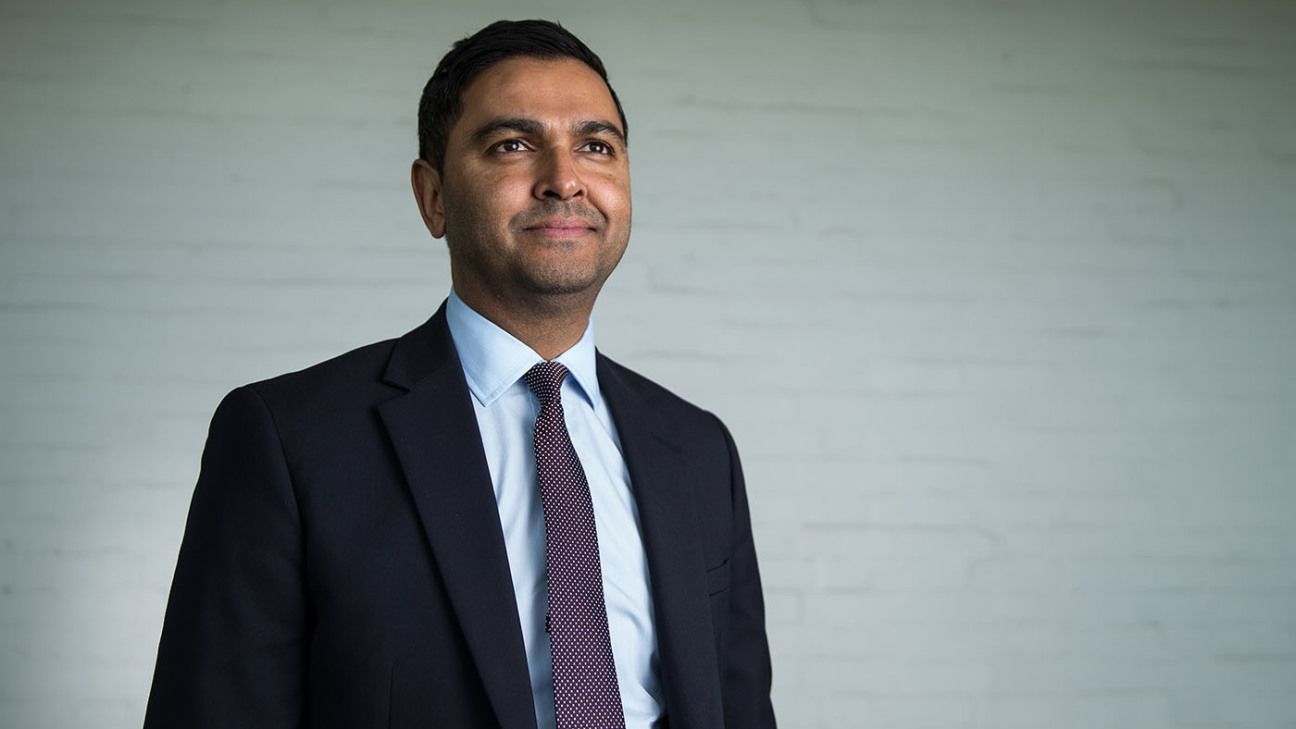
Wasim Khan, the PCB CEO, has resigned from his role four months before the end of his contract. Wasim had begun his stint as the board's executive on a three-year contract in 2019, and in light of his abrupt departure, the PCB chairman Ramiz Raja has called in the board of directors for a meeting on Wednesday afternoon to take up the matter.
Ever since Ramiz formally took up the position of chairman, there have been a number of senior resignations. Earlier this month, Pakistan's head coach Misbah-ul-Haq and bowling coach Waqar Younis had both stepped down from their roles too. Furthermore, it is understood that Wasim wasn't involved in the appointment of Matthew Hayden and Vernon Philander as Pakistan's coaches for the upcoming T20 World Cup.
With a year remaining in his contract, Wasim was undecided about his future anyway in the position beyond his initial term. With Ehsan Mani at the helm of affairs, Wasim was offered an extension for another three years, but that never materialised, as Ramiz becoming the new chairman changed the dynamics within the PCB.
Taking on the role in 2019, Wasim has enjoyed some success in maintaining the new corporate structure introduced by Mani. He was the main man behind the execution of the radical change in domestic restructure forced by the Prime Minister Imran Khan. He oversaw the dismantling of the previous mix of departmental and regional cricket by implementing the provincial-team model. The revamping came at the cost of a lot of players losing their livelihood, as Wasim faced enormous nationwide outrage.
But, he offered a solution by revamping the domestic cricket department and combining it with national cricket academies to make it a high-performance centre, thereby creating more jobs in provincial teams and city associations. The PCB eventually created jobs for all veteran cricketers at the association level, offering them opportunities on various scales ranging from administrative jobs to field jobs.
Wasim has also enjoyed some success in improving Pakistan's status as a venue that is safe and welcoming for touring teams. He managed to get the entire PSL played in Pakistan, while also ensuring Test cricket returned to the country. While Wasim was largely building on the groundwork laid out by the previous regime, under his watch, the administration has not had to pay money to get teams to visit Pakistan.
Wasim's personal relationship with key figures, especially in England, is understood to have been instrumental in convincing teams to tour Pakistan. However, with both New Zealand and England pulling out of their tour of Pakistan, Wasim's progress on that front has been significantly dented.
The present constitution, which was rewritten in 2019, curtailed the almost dictatorial powers the chairman of the PCB had, passing most of them on to the newly appointed managing director (position renamed as CEO later) to share power more effectively and reduce conflicts of interest, making it consistent with best governance practices. Otherwise, since 2007, the chairman held executive power and could control and oversee income and expenditure, form the selection committee, make appointments including the heads of such committees, the captains, vice-captains of the national cricket teams (men and women) and hold authority for final approval, and finalise cricket teams picked by the selection committees.
But with the new legislation under Mani, all the roles have been tagged with chief executives instead of the chairman, because the executive authority effectively undermined the day-to-day management of the board. The chairman still holds sizeable power, but it has more to do with policy decisions. The chairman, according to the constitution, holds no final say in the selection of national teams for any series or event or has the power of naming a captain and vice-captain, with the CEO overseeing that responsibility and the chairman only allowed the final say, for which the chairman will be briefed by the CEO.
Due to the vacancy, Ramiz may now assign the CEO's function to any officer of the board. A vacancy for the post will have to be filled within and not exceeding 90 days.
Umar Farooq is ESPNcricinfo's Pakistan correspondent















 Phone: (800) 737. 6040
Phone: (800) 737. 6040 Fax: (800) 825 5558
Fax: (800) 825 5558 Website:
Website:  Email:
Email: 






